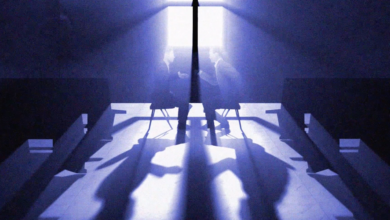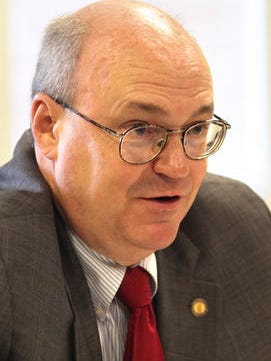
Barbarita Acosta, or affectionately nicknamed Barbie, is celebrating her first birthday this weekend. The infant already overcame extraordinary medical odds. Barbie was born with neonatal lupus, a rare condition that attacked her heart. At just five days old she received a pacemaker. But after a few weeks, doctors said she needed to find a heart donor. “They told us that very same day that by the end of the night she would be life-lifted out of there,” mother Angel Moreno said. “So, we came home and packed up as soon as we can. And we just got in the car and followed the helicopter. Tried to beat it there.”Barbie spent more than 200 days at Lucile Packard Children’s Hospital Stanford. “Barbie was born with a condition called neonatal lupus, which is a condition in which the mother has antibodies that can attack the baby while she is still in the mother’s womb,” Dr. Seth Hollander said. “Her condition is quite rare. Only about 1% of women will have these antibodies. And only about 2% of women with these antibodies have this kind of effect on the baby.” Dr. Hollander is the medical director of Pediatric Heart Transplantation.“About 500 heart transplants are performed in the country each year in children. However, among children under the age of one year are the hardest to find matches for,” he explained. “And infants waiting for heart transplants are the most likely group to pass away while waiting for a donor organ.” Dr. Hollander said roughly 25% of infants waiting for a heart transplant will die while waiting. "We are very grateful for whoever that anonymous donor family is for providing such a wonderful gift and a second chance for this little girl,” he said. Barbie’s heart surgery happened in September when she was a little over six months old. “It literally brought me to my knees. I was crying,” Moreno said. “We only had so long — I believe it was four hours — to make a decision if we wanted the heart or not. So, it was a really hard decision because there were so many good and bads to both sides of saying yes or no to accepting the heart.”And COVID-19 protections complicated an already dire road.“Oh man it was really scary because nobody could really be there to support us,” Moreno explained. “There was actually a long period of time where dad was not allowed to come into the hospital because they were only letting one parent in.”Barbie’s surgery was a success. And she went home to Sacramento, California, just before Thanksgiving. Dr. Hollander added Barbie's future is very bright. She has no transplant rejection and is catching up on her developmental milestones. He expects the heart to last for several decades, allowing Barbie to grow up pretty much like a normal kid.“When I look at her it’s really hard to believe she’s had a heart transplant because she acts so much like a baby,” Moreno said.“It’s amazing to know that when we first found out, we weren’t sure if we were going to have a baby, to now, we’re celebrating her first birthday coming up. So, that’s really great.”
Barbarita Acosta, or affectionately nicknamed Barbie, is celebrating her first birthday this weekend. The infant already overcame extraordinary medical odds.
Barbie was born with neonatal lupus, a rare condition that attacked her heart. At just five days old she received a pacemaker. But after a few weeks, doctors said she needed to find a heart donor.
“They told us that very same day that by the end of the night she would be life-lifted out of there,” mother Angel Moreno said. “So, we came home and packed up as soon as we can. And we just got in the car and followed the helicopter. Tried to beat it there.”
Barbie spent more than 200 days at Lucile Packard Children’s Hospital Stanford.
“Barbie was born with a condition called neonatal lupus, which is a condition in which the mother has antibodies that can attack the baby while she is still in the mother’s womb,” Dr. Seth Hollander said. “Her condition is quite rare. Only about 1% of women will have these antibodies. And only about 2% of women with these antibodies have this kind of effect on the baby.”
Dr. Hollander is the medical director of Pediatric Heart Transplantation.
“About 500 heart transplants are performed in the country each year in children. However, among children under the age of one year are the hardest to find matches for,” he explained. “And infants waiting for heart transplants are the most likely group to pass away while waiting for a donor organ.”
Dr. Hollander said roughly 25% of infants waiting for a heart transplant will die while waiting.
"We are very grateful for whoever that anonymous donor family is for providing such a wonderful gift and a second chance for this little girl,” he said.
Barbie’s heart surgery happened in September when she was a little over six months old.
“It literally brought me to my knees. I was crying,” Moreno said. “We only had so long — I believe it was four hours — to make a decision if we wanted the heart or not. So, it was a really hard decision because there were so many good and bads to both sides of saying yes or no to accepting the heart.”
And COVID-19 protections complicated an already dire road.
“Oh man it was really scary because nobody could really be there to support us,” Moreno explained. “There was actually a long period of time where dad was not allowed to come into the hospital because they were only letting one parent in.”
Barbie’s surgery was a success. And she went home to Sacramento, California, just before Thanksgiving.
Dr. Hollander added Barbie's future is very bright. She has no transplant rejection and is catching up on her developmental milestones.
He expects the heart to last for several decades, allowing Barbie to grow up pretty much like a normal kid.
“When I look at her it’s really hard to believe she’s had a heart transplant because she acts so much like a baby,” Moreno said.
“It’s amazing to know that when we first found out, we weren’t sure if we were going to have a baby, to now, we’re celebrating her first birthday coming up. So, that’s really great.”
Source link












